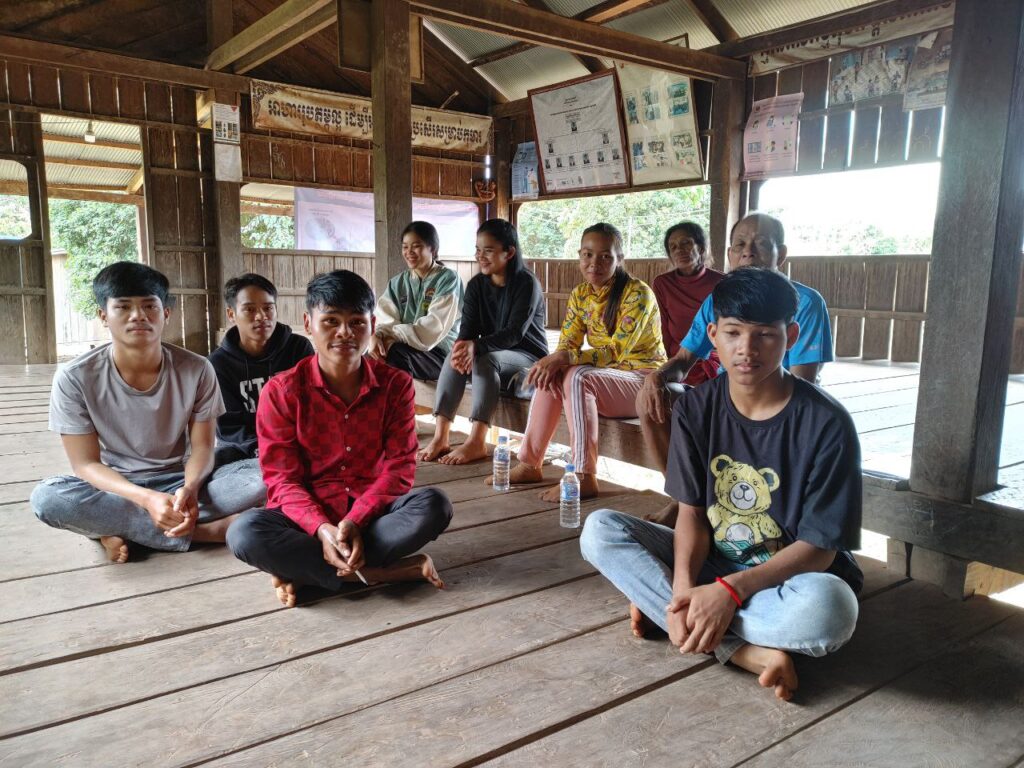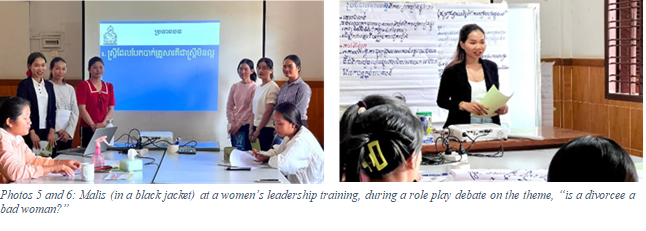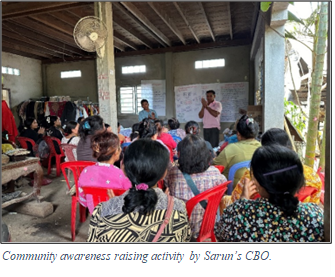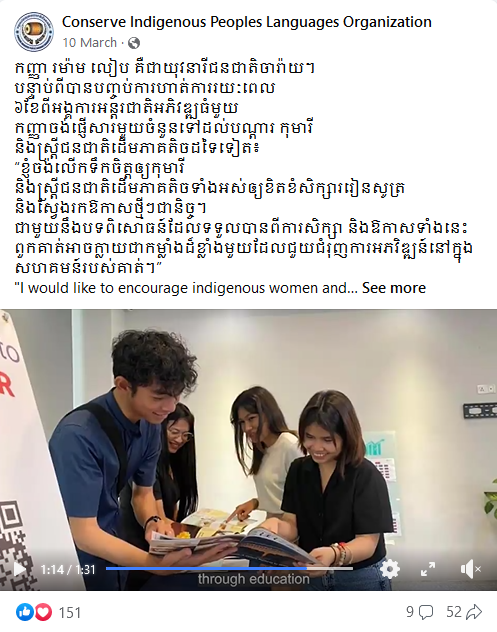Participating in discussions and learning about current issues boosts indigenous youth’s confidence.
“Because I participated in various activities and training, I now feel more confident in expressing myself and my community.”
Mr. Mong Samut is a 22-year-old Brao indigenous youth. He was born in a remote area located in Sieng Say village, Ta Veaeng Kraom commune, Ta Veaeng district, Ratanakiri province. This is where he is living with his family. As an indigenous youth, he had few opportunities for further education. He was a young farmer without a confident expression and so preoccupied with his job that he was unaware of the situation outside of the community. However, land and forestry issues have arisen in his community. He wishes to seek assistance and share these conflicts and challenges with others to obtain protective intervention.

Until he gets to know Open Development Cambodia (ODC) and Conserve Indigenous Peoples Languages (CIPL) organizations, he has a chance to learn and participate in various activities and training such as mobile report training, data visualization and storytelling, and identifying topics on natural resource, land, and environment. He has learned how to identify problems, edit videos, and gain basic knowledge of natural resources, land, and forestry. Even though his knowledge cannot be compared to that of people living in cities, he is dedicated and always pays more attention to the lesson and discussions.
The desire to express the community’s issues and challenges keeps him go on. He is ready to share what is going on in his community while gathering information from others to share with his own. He pledges to open his community’s culture, livelihood, and issues through what he learned if given the opportunity.
Similar Stories
Breaking chains: A woman’s journey from a violent trap to freedom
Mrs. LEV Malis, 27, from Pouk District, Siem Reap Province was married to a violent and cheating man for seven years, with whom she had two children. Mrs. Malis got depressed and did not dare to go out or face the problem. Sometimes she considered ending her life. She had no one listen to her or be her peer support but was instead blamed by her parents for not being patient enough to be a good woman. One day, Malis met a leader of Community Based Organization (CBO), Mrs. Tep Mey, who gave her advice and referred her to the Banteay Srei Organization, which provides support to women who are victims of domestic violence. Through the support of Banteay Srei, Malis embarked on a new journey of hope, confidence, and be able to live free from violence. She left her husband, taking her two children with her, and is seeking a divorce, a decision that requires her to overcome many challenges, including social norms that frown on divorce and a difficult legal process. On September 14, 2022, Malis decided to become a volunteer for Banteay Srei. She attended her first training courses on leadership, self-awareness and facilitation skills and then joined many other workshops about gender-based violence, sexual harassment, abuse and other topics. After attending training workshops and meetings, she gained courage, and shared some of her life experiences, including how she built her self-esteem and self-motivation. In December 2022, she had gained enough confidence to be a guest speaker in the 16-day Campaign to discuss the topic “End Violence Against Women.” In early 2023, Malis started her own small business in Pouk Market, Siem Reap Province. Her business provides enough income to take care of her two children. She was inspired to share her good business start-up experience, including using digital technology and online marketing, with other women leaders at the Women Leadership Forum in April 2023.
Shifting attitudes towards sexual harassment
Mr. Oeun Sarun is a 71-year-old CBO leader in Thmey village, Bansay Treng commune, Thmor Kol district, Battambang province. He leads a CBO called “Sahakum Morodak Phum Thmey,” which was selected as one of the cluster members in the Together for Gender Justice (T4GJ) project in October 2022. Mr. Oeun Sarun is a 71-year-old CBO leader in Thmey village, Bansay Treng commune, Thmor Kol district, Battambang province. He leads a CBO called “Sahakum Morodak Phum Thmey,” which was selected as one of the cluster members in the Together for Gender Justice (T4GJ) project in October 2022. Similar to other CBO leaders participating in the T4GJ project, Mr. Sarun facilitated community meetings to share knowledge and understanding of sexual harassment so that participants can further spread the knowledge to the family and neighbors. In his own time, he also continuously disseminated his knowledge to his neighbors and friends as well. He observed that his family and community gradually changed their thinking on sexual harassment, by reflecting on what they did in the past and how they can prevent it now and in the future.
CSS’s Intern Romam Leap shares her internship experience
CSS produced a short video to highlight the internship experiences of former communications intern and Jarai indigenous youth Romam Leap. The video was very well received by the public on social media, generating approximately 150 reactions, 52 shares, and 2,700 views on Facebook


